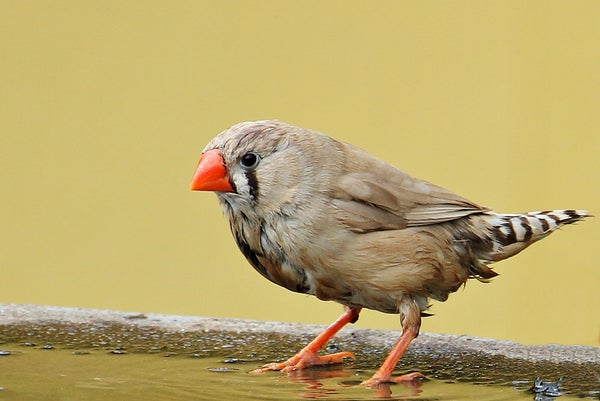关于支持科学新闻业
如果您喜欢这篇文章,请考虑通过以下方式支持我们屡获殊荣的新闻业 订阅。通过购买订阅,您正在帮助确保未来能够继续讲述关于塑造我们当今世界的发现和想法的具有影响力的故事。
有时,解决问题的最好方法是睡一觉。这种方法似乎不仅被人类采用,也被鸣禽采用。事实上,根据周五发表在《科学》杂志上的一份报告,斑胸草雀可能非常依赖睡眠来排练它们的歌曲。
芝加哥大学的 Amish S. Dave 和 Daniel Margoliash 着手研究鸣禽运动活动和听觉反馈之间的关系,他们在白天鸟类唱歌时研究了斑胸草雀前脑中的神经元。然后,他们观察了这些生物在睡觉并暴露于它们歌曲录音时相同的神经元。他们发现了一种惊人相似的模式。研究人员表示,这种相似性表明,鸟类会将它们听到的歌曲存档,并在打盹时“离线”练习。
他们在报告中写道:“我们对睡眠研究期间感觉运动模式的神经元重放的观察,与海马体研究的数据一致,这些数据表明睡眠对于巩固空间记忆的神经元时间码非常重要。”
